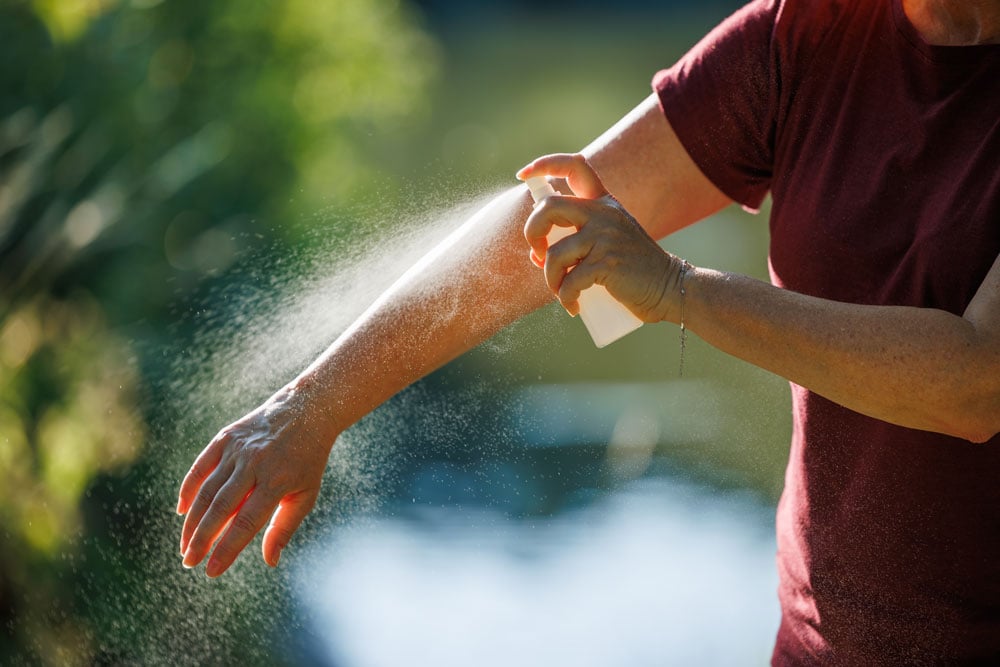How Can We Help Loved Ones Navigate Their Recovery Journey?
Pittsburgh-based recovery programs can help families recognize the signs of addiction and give them the resources they need to support those they love.

FAMILY MEMBERS AND FRIENDS CAN HELP THEIR LOVED ONES ALONG THEIR ROAD TO RECOVERY BY SUPPORTING THEM EVERY STEP OF THE WAY. GROUP THERAPY SESSIONS ARE ONE RESOURCE AVAILABLE THROUGH RECOVERY PROGRAMS IN THE PITTSBURGH AREA. | PHOTOS: SHUTTERSTOCK
If you know someone battling addiction, you are not alone.
Millions of Americans, including more than 180,000 Pittsburghers, are affected by substance use each year and accidental drug overdose is the leading cause of death among persons under age 45.
Watching someone you love struggle with substance use disorder is painful and can often leave us feeling helpless and hopeless.
Allegheny County has a number of programs and resources in place to give you the resources you need to help your loved one on their path to wellness.
Rebecca Trout, clinical director with Recovery Centers of America – Monroeville, says addiction is not a spectator sport and it will eventually affect the whole family.
“One thing to keep in mind when somebody is starting that journey in recovery is they are learning to live a completely different way of life,” she says. “A lot of people in recovery struggle with communication. The substances covered up their emotions and feelings, and now they are facing all of them at once. We also give them the tools to help them process those emotions.”
She stresses the importance of family and friends becoming educated to help break the stigmas associated with addiction and remaining vigilant in supporting their loved ones, while also seeking help for themselves through therapy and self-care.
David Blenk, CEO of Recovery Centers of America – Monroeville, says family programs at the center help them to identify the signs and symptoms of substance use disorder.
“Someone in active addiction might begin isolating themselves from family and friends, stop bathing, wear the same clothes. We help families recognize the difference in behavior.”
Family members and friends should play an active role in their loved ones’ road to recovery. Giving them much-needed support while setting healthy boundaries can help them stay on track.
A blog by Dillon McClernon of Recovery Centers of America gives the following tips of support:
- Encourage your loved one or friend to seek treatment
- Provide a listening ear and emotional support
- Offer practical assistance with things such as transportation, daily tasks
- Encourage healthy habits
- Participate in family therapy
- Attend family support groups and therapy
Trout adds it is important to help loved ones refrain from falling into old habits, such as hanging out at the same places or with the same people as when they were in active addiction, and recognizing the root cause of their loved one’s addiction.
“Addiction is usually a symptom of a greater problem,” she says. “When someone enters the stage of full-blown addiction, there is usually something in the background that causes them to go down that road, such as trauma.”
Genetics can also play a role in addiction. Trout encourages families with a history of drug and alcohol abuse to have those difficult conversations with children and loved ones to help break the generational cycle.
Recovery Centers of America – Monroeville tailors its programs to each participant, first recognizing where recovery starts. The center helps about 1,200 people a year and, according to Blenk, most reach a stable point in recovery following treatment.
The center provides detox treatment, inpatient and outpatient plans, immersive 12-step programs, cognitive behavioral therapy, nutrition and physical wellbeing education and psychiatric care.
September marks National Recovery Month and many programs in the region will host events and activities this month to promote new evidence-based treatment and recovery programs while celebrating those in recovery and the service providers in the community.
DreamLife Recovery recently opened a partial hospitalization program outpatient facility at 107 Gamma Drive, RIDC Industrial Park, in O’Hara.
“With the opening of this new facility, and our expansive list of insurance providers including UPMC Health Plan and many others, we are able to extend our care and help more individuals in our community achieve lasting recovery,” Lidice Morales, vice president of operations at DreamLife Recovery, said in a press release.
Partial hospitalization patients receive structured and concentrated treatment, but within a more flexible environment. The facility offers on-site medical staff for comprehensive care and close collaboration with the residential facility so each patient experiences a seamless continuum of treatment, the press release reads.
In Swissvale, Allegheny County’s first halfway house designed specifically for women in recovery from addiction is expanding. The Pennsylvania Organization for Women in Early Recovery, or POWER, is close to raising $12 million to create a complex on the former Word of God church campus that would include a detox and rehab clinic, a halfway house, outpatient counseling, peer recovery support and children’s programs. It served 1,700 people in 2022.
One of the largest recovery events in the city is The Pittsburgh Recovery Walk, slated for 9 a.m. to 1 p.m. Saturday, Sept. 16. Meet at 1201 Waterfront Place in the Strip District (parking lot across from the Heinz History Center). The event celebrates the roads to recovery and also features guest speakers, a resource fair, kids’ activities, food trucks and a dance party.
“There’s nothing more rewarding than seeing all of these individuals gathering in one place for one common cause, walking through the streets of Pittsburgh unified,” Trout says of the walk.
Find more recovery events in the Pittsburgh region this month and beyond here.
Find more information and resources on recovery efforts in the state here.















